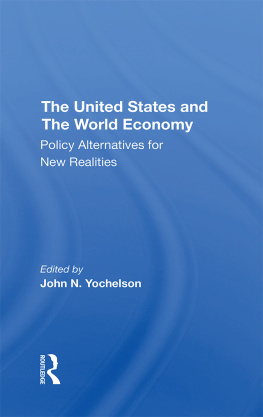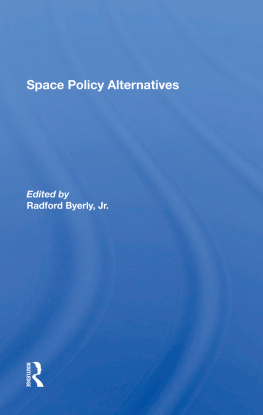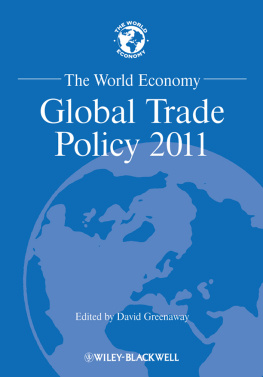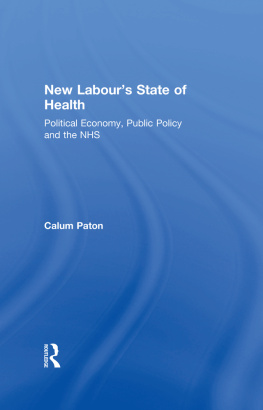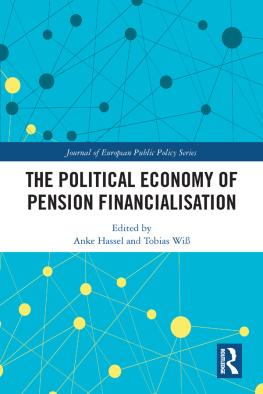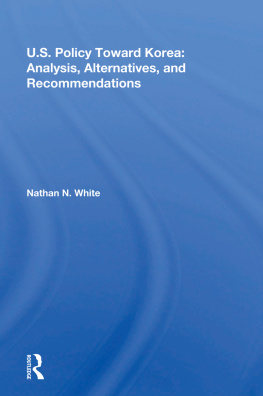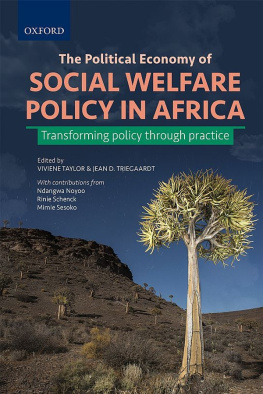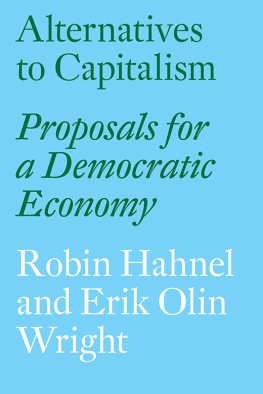The United States and The World Economy
Other Titles Published in Cooperation with the Center for Strategic and International Studies, Georgetown University
International Security Yearbook 1984/85, edited by Barry M. Blechman and Edward N. Luttwak
NATO: The Next Generation, Robert E. Hunter
Bioenergy and Economic Development: Planning for Biomass Energy Programs in the Third World, William Ramsay
Modern Weapons and Third World Powers, Rodney W. Jones and Steven A. Hildreth
The Emerging Pacific Community, edited by Robert L. Downen and Bruce J. Dickson
The Cuban Revolution: 25 Years Later, Hugh S. Thomas, Georges A. Fauriol, and Juan Carlos Weiss
Banks , Petrodollars, and Sovereign Debtors, Penelope Hartland-Thunberg
Forecasting U.S. Electricity Demand: Trends and Methodologies, Adela Bolet
U.S.-Japanese Energy Relations: Cooperation and Competition, edited by Charles K. Ebinger and Ronald A. Morse
National Security and Strategic Minerals: An Analysis of U.S. Dependence on Foreign Sources of Cobalt, Barry M. Blechman
Available in hardcover and paperback.
About the Book
The structure of the world economy has changed dramatically in recent years, reflecting a redefinition of U.S. interests in light of increasing foreign penetration in U.S. markets, global pressures for protectionist policies, the emergence of the newly industrializing countries, and the vulnerabilities of the international financial system. This collection of essays addresses these and other developments facing policymakers in business, government, and labor. The authors discuss policy challenges in international trade, technological competition, exchange-rate disequilibrium, Third World debt, and the role of the private sector.
PUBLISHED IN COOPERATION WITH THE CENTER FOR STRATEGIC AND INTERNATIONAL STUDIES GEORGETOWN UNIVERSITY
The United States and The World Economy:
Policy Alternatives for New Realities
edited by
John N. Yochelson
with the assistance of
Catherine Stirling
First published 1985 by Westview Press
Published 2019 by Routledge
52 Vanderbilt Avenue, New York, NY 10017
2 Park Square, Milton Park, Abingdon, Oxon OX14 4RN
Routledge is an imprint of the Taylor & Francis Group, an informa business
Copyright 1985 by The Center for Strategic and International Studies, Georgetown University
All rights reserved. No part of this book may be reprinted or reproduced or utilised in any form or by any electronic, mechanical, or other means, now known or hereafter invented, including photocopying and recording, or in any information storage or retrieval system, without permission in writing from the publishers.
Notice:
Product or corporate names may be trademarks or registered trademarks, and are used only for identification and explanation without intent to infringe.
Library of Congress Cataloging in Publication Data
Main entry under title:
The U.S. and the world economy.
(A Westview special study)
1. United StatesCommercial policyAddresses,
essays, lectures. I. Yochelson, John N. II. Title:
The U.S. and the world economy.
HF1455.U143 1985 337.73 85-3298
ISBN 13: 978-0-367-29676-6 (hbk)
Contents
by William E. Brock
by Harald B. Malmgren
by john N. Yochelson
by Jonathan D. Aronson and Paul R. Krugman
by Stephen A. Merrill
by Gordon Richards
Jonathan D. Aronson is an associate professor of international relations at the University of Southern California. He recently completed a Council on Foreign Relations International Affairs fellowship in the Office of the U.S. Trade Representative.
Paul R. Krugman is the Ford Associate Professor of International Business Management and Economics at the Sloan School of Management of the Massachusetts Institute of Technology. He spent 1982-1983 on leave as an international policy economist at the Council of Economic Advisers.
Harold B. Malmgren is the president of Malmgren, Inc. and is an adjunct professor at the School of Foreign Service, Georgetown University. He also has served as Deputy Special Trade Representative at the Office of the U.S. Trade Representative.
Stephen A. Merrill is a fellow and director of Technology and International Business Studies at the Center. Previously he was on the professional staff of the Senate Commerce, Science and Transportation Committee.
Gordon Richards is director of economic analysis at the National Association of Manufacturers. In 1983 he received his Ph.D. in political science from the University of Chicago.
John N. Yochelson is the director of the CSIS International Business and Economics program and the Quadrangular Forum. He previously served with the State Department and as a consultant to the Joint Economic Committee of the Congress.
One of the great strengths of the American political process is its capacity to draw upon the views and experience of those outside government. Thoughtful people from business, labor, and the policy research community have long been a rich resource for the executive branch and Congress. At their best, they bring not only practical insights and fresh ideas but that rarest of commodities in Washingtonperspective beyond the day-to-day issues that often threaten to overwhelm policymakers.
Nowhere is the need for creative thinking more apparent than in the international economic arena. The world economy has been transformed over the past 15 years by the shift from the gold standard to floating exchange rates, the oil shocks of the 1970s, the explosive growth of Third World debt, the emergence of newly industrializing countries as world-class competitors, and the accelerating pace of technological change. These developments have made the challenges faced by the United States more demanding than ever. They have speeded the internationalization of the U.S. economy, creating new opportunities and vulnerabilities. As traditional lines between domestic and international policy agendas have blurred, the task of defining, integrating, and promoting U.S. interests has become all the more important.
In the early fall of 1982, the Center for Strategic and International Studies of Georgetown University proposed that I help form a working group of leading representatives from the business, labor, and policy research communities to examine the key challenges facing the United States and its major Western trading partners. Counterpart groups focusing on the same agenda were established in Canada, Europe, and Japan under the leadership of former Minister of Trade Edward Lumley, former Vice President of the European Communities Commission Etienne Davignon, and former Japanese Foreign Minister Saburo Okita respectively.
Together, these four groups constituted the Quadrangular Forum that has met regularly since the spring of 1983. The forum has produced some excellent policy papers, while at the same time concentrating its efforts on the annual economic summits of Western leaders as a timely opportunity to widen the dialogue between government officials and representatives of the private sector. The presummit meetings have been of great value to all who have participated.
This volume contains a selection of the most stimulating policy papers done by the American participants in the Quadrangular Forum. Harald Malmgren argues that the United States has entered an era of managed trade in which the challenge of keeping world markets open will be increasingly difficult. He raises a host of basic questions that must be addressed in thinking through U.S. interests in this new setting. John Yochelson analyzes the impact of U.S. economic resurgence on relations with our European and East Asian trading partners. He foresees a sustained period of assertiveness in U.S. economic diplomacy, driven partly by the commitment of the Reagan administration to market forces but also by the pressure of increasing trade deficits. Jonathan Aronson and Paul Krugman analyze the vital interrelationship between trade flows, exchange rates, and the management of international debt. They lay out options for adjusting the policy process, both domestically and internationally, to address these interrelationships more effectively. Stephen Merrill assesses technological competition among the advanced and industrializing countries. Merrill's perceptive analysis of U.S. vulnerabilities and assets in high technology advances the debate on industrial strategy. Gordon Richards compares two explanations of the forces that are driving the performance of the U.S. economy. He contends that shifting macroeconomic policy, more than structural factors, accounts for the key changes that have been taking place in the industrial sector.


